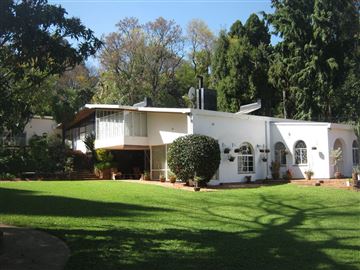A SHORT GUIDE ON THE DIVORCE PROCEDURE IN CIVIL MARRIAGES IN ZIMBABWE

A Cautionary Tale on Sale & Purchase Of Land in Zimbabwe
October 2, 2022There are 4 types of marriages in Zimbabwe all under Chapter 5.15 of the new Marriages Act namely, civil marriage, registered customary law marriage, unregistered customary law marriage and qualified civil marriage. The law of divorce is determined by the type of marriage which one enters into. This article will mainly focus on the divorce procedure in a Civil marriage in Zimbabwe.
Divorce in Zimbabwe commences by way of a Summons and Declaration issued in the High Court. The person instituting the divorce procedure, who is known as the Plaintiff, presents in their summons the reasons why they wish to divorce the other party known as the Defendant. The reasons for the divorce should be guided by the provisions of the Matrimonial Causes Act, Chapter 5:13. The party must show an irretrievable breakdown of the marriage relationship. The party must also state on what basis the court has jurisdiction to hear the matter.
The Deputy Sherriff of the High Court then delivers the summons to the Defendant. The High Court Rules require that divorce summons to be served personally on the other party because divorce entails a change of one’s status from being “married” to “divorced”. Harm and embarrassment may come to a party who might unwittingly marry another thinking that they have divorced their spouse who knows nothing about the action. It is therefore trite that the Defendant’s address and phone number are provided in the summons so that they can be easily located.
After the summons are served on the Defendant, several other documents known as court pleadings are exchanged between the parties and filed in the High Court within the stipulated time frames provided in the High Court Rules. These documents are what will assist the presiding judge to make a determination on the decree of divorce, how to share the property acquired during the marriage and also what happens to the children born in the marriage. The court is also guided by the Matrimonial Causes Act, Chapter 5.13 in making its determination.
There are, however, instances when married parties separate and have lost contact without being divorced. The party instituting the divorce might not know where their spouse is and now wishes to divorce them. In this instance, the High Court Rules have provided a remedy known as Substituted Service. This is a legal procedure which allows a person to serve all court documents to the other party, by way of the publication of a shortened form of the divorce summons in a local publication in the area where the spouse is living but where their physical address is not known. The High Court has also permitted the service of summons via an active email address of the Defendant in some instances.
The party seeking to commence the divorce by substituted service will make a chamber application to the court and provide sufficient facts to indicate the best manner to serve the other party and also explain why that person cannot be served in the normal way. After the judge is satisfied that the location of the Defendant is truly unknown the court will allow a party to publish in the local newspaper a shortened version of the summons giving the Defendant some days to respond.
Divorce can either be granted by the court by consent (uncontested), or by default, or, it can be contested. A consented (uncontested) divorce is when both parties agree on all matters pertaining to the dissolution of their marriage, such as the division of matrimonial assets and custody of children. In this type of divorce, parties sign a Consent Paper which is basically an agreement to the divorce and its terms, and they do not have to appear in court. Secondly, a contested divorce is the opposite of a consent divorce where parties are not agreeing to the divorce. The parties appear in court to give verbal testimonies to their claims before the Judge. This is the most complex type of divorce as it is long, emotional and expensive. Lastly, a default divorce is one in which one party obtains a judgement of divorce based on the other party’s failure to respond to any court papers within the stipulated time.
In brief, these are ways to institute divorce proceedings in Zimbabwe.
Tatenda Muyambo
07 March 2023


